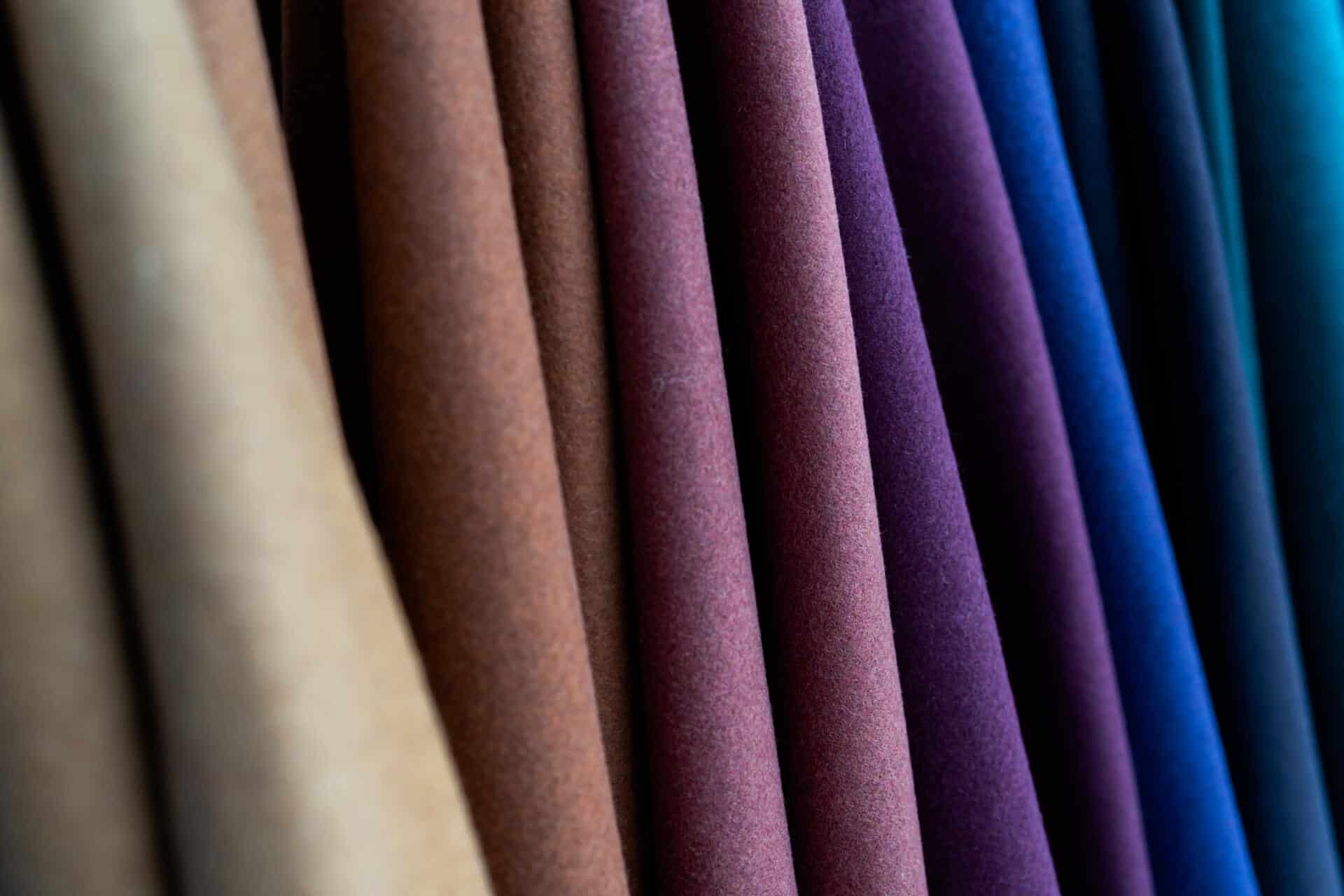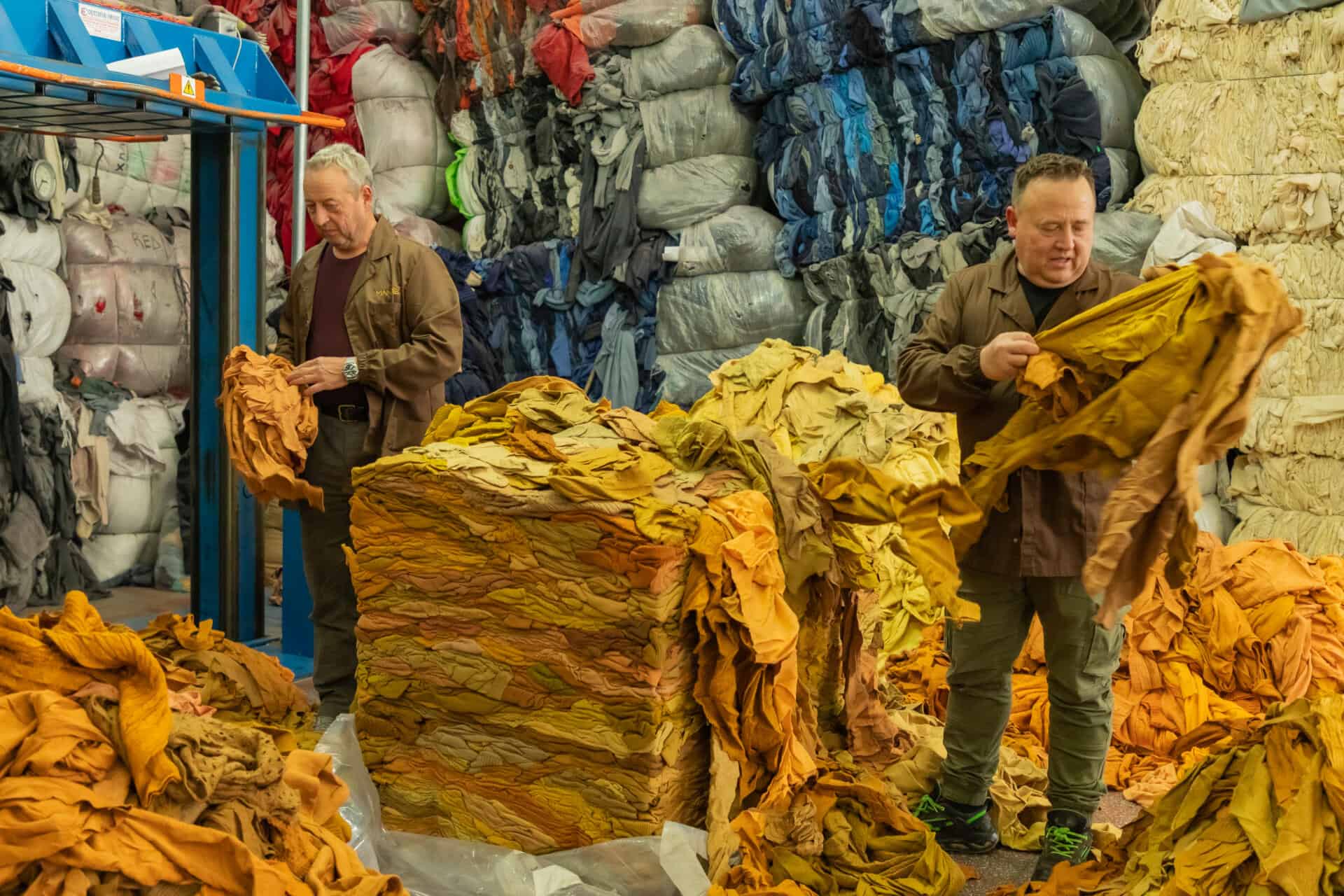How recycled wool can reduce brands’ carbon footprint
Discover how recycled wool MWool® can lower Scope 3 Emissions
Recycled wool MWool® can avoid up to 99,2% of CO2 emissions compared to generic virgin wool.
The fashion industry is notoriously responsible for approximately 10% of worldwide CO2 emissions, and if no action is taken, it will be emitting an estimated 2.7 billion tons of CO2 in 2030. This can be tackled in numerous ways, and some solutions are already scaled, such as recycled wool
It’s all true, recycled wool is not just about extending products life span, but also about creating new clothing with a much lower carbon footprint, especially regarding Scope 3 emissions. All of this is possible because wool is:
-Wool is an exceptionally robust and circular animal fiber, which gives life to garments with prolonged durability, but its value extends beyond longevity (Read more on 5 Reasons why wool is the circular fiber par excellence)
-Wool is a highly recyclable fiber transforming into ‘new’ fiber that can be employed to craft luxurious fabrics (Read more on How is a recycled wool fabric made?).
This not only elongates the lifespan of garments but also mitigates the reliance on virgin materials, thereby alleviating environmental strain and amortizing the initial fibers’ impacts – climate change included.

Thanks to the use of existing fibers, a mechanical recycling process and the absence of added dyes to create product colors, recycled wool can really make a dent on brands’ carbon footprint, leading to significant environmental savings on all parameters compared to using virgin wool.
This is not meant to make virgin wool appear as an unsustainable fiber, on the contrary, such a low-impact circularity is a unique added value and a competitive advantage for wool in general.
Just as all the other fibers used in fashion, virgin wool production comes with its own set of environmental challenges. It involves extensive land use for sheep grazing, water, chemicals and energy for the fiber scouring, the dyeing and manufacturing processes. Nonetheless, these initial impacts can be amortized with recycling, for multiple times, by diverting materials from landfill and still producing premium quality materials. And the question arises, what else do we need?

Compared to virgin wool fibers, recycled wool MWool® fibers impacts 99,2% less on climate change, 99,9% less on water use and 93,3% less on total energy consumption. These savings slightly decrease when we assess the entire production of a fabric (compared to equivalent fabrics made with generic virgin wool), but they are still significant.
Recycled wool fibers have significantly lower environmental impacts than virgin fibers, even when the most unfavorable scenarios are considered. As climate change is concerned, 1 kg of recycled wool MWool® has a carbon footprint of 0.1–0.9 kg CO2 eq., while producing virgin fibers releases 10–103 kg CO2 eq. These data come from one the most authoritative Life Cycle Assessment on recycled wool fibers ever made, and they obviously vary depending on the input material and its origin (pre-consumer, post-consumer and industrial waste), the weight of the fabric, and also its finishing. Just to make it simpler, a recycled wool flannel with a standard finishing will of course have more environmental savings compared to a heavyweight, bouble fabric with a brushed finishing.
In conclusion, brands have an opportunity and responsibility to adopt more sustainable practices. The use of recycled wool MWool® is a powerful strategy to reduce the carbon footprint, not to mention all the rest. It's just about time to make the fashion industry better, and recycled wool MWool® is a ready solution.
Manteco® has been improving wool recycling processes for more than 80 years, since 1941, with the constant aim of taking recycled wool to the next level. MWool® is the result of all our heritage, know-how and innovation. We provide designers a choice of more than 1000 no-dye colors thanks to the unique Recype® process: our circular, chemicals-free, dyes-free and unique way to create recycled wool colors; thanks to this technique we manage to devise new wool colors just by mixing different fibers and shades.
MWool® is the world’s first recycled wool with a peer-reviewed Life Cycle Assessment, which allowed us to provide science-based data on its low impact and to obtain 4 EPD® Environmental Product Declaration certifications
About Manteco, Italian premium textiles and circularity since 1943
After decades in the fashion world, in 2018, we have created the Manteco Academy project, through which we give webinars, in-person lessons and workshops on eco-design, circular economy and sustainability to numerous fashion schools, technical universities and brands worldwide. Thanks to this educative commitment and our heritage, we are often invited as guest speaker at events, panels, podcasts and conferences about sustainable fashion and circular economy.

